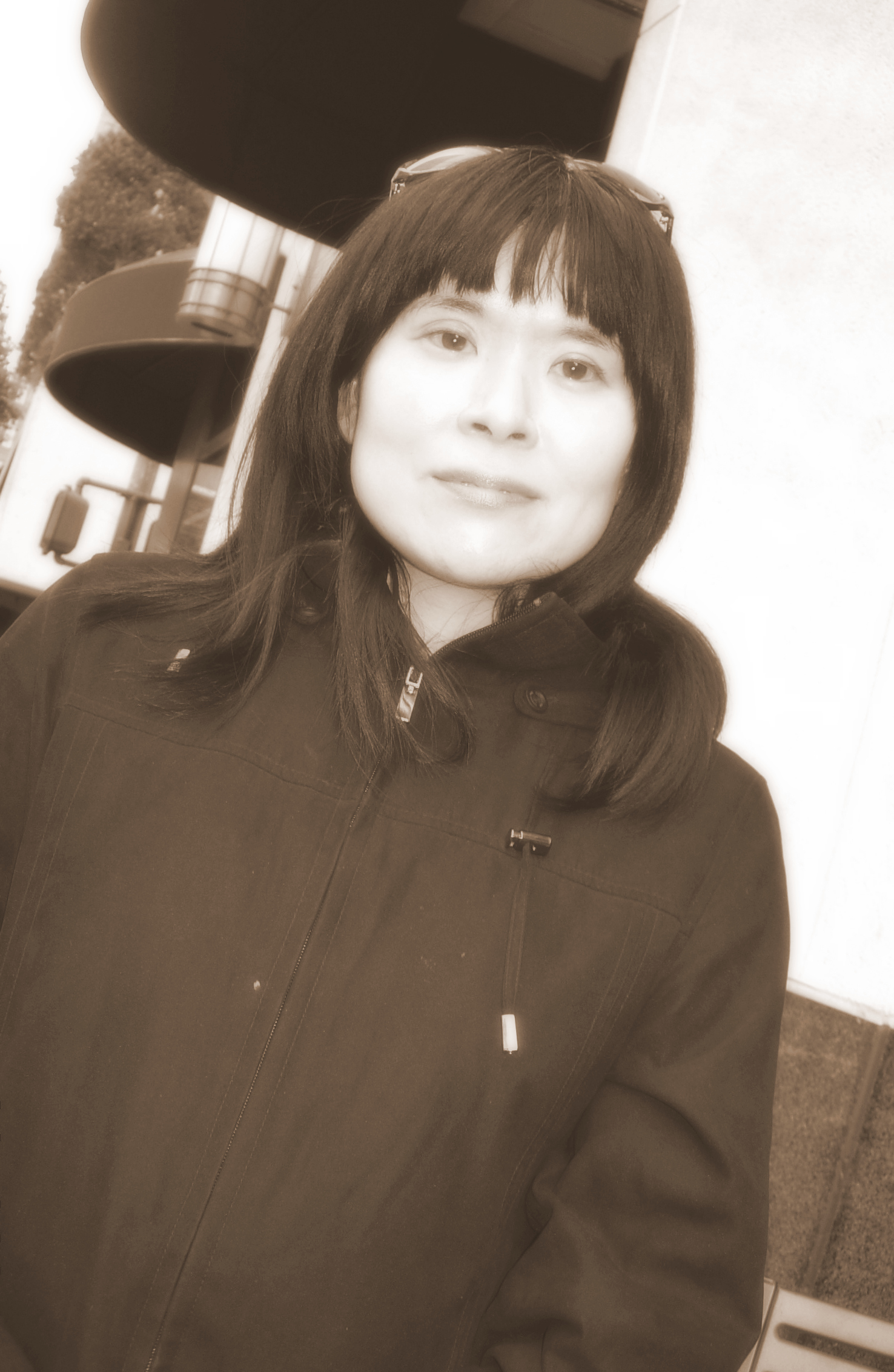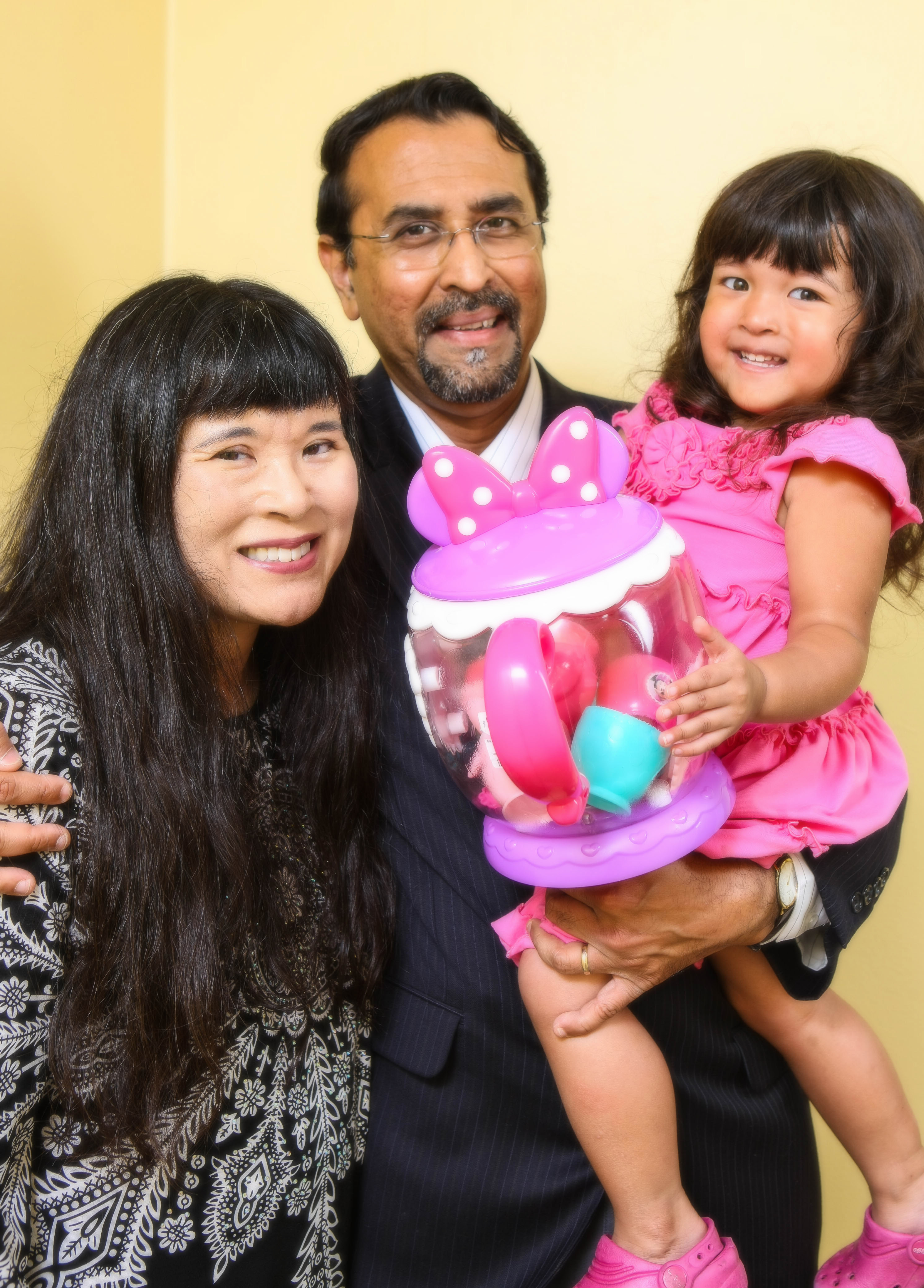Twenty-five years ago, when Claire Kageyama-Ramakrishnan and I became classmates in the MFA program in poetry at the University of Virginia, we were the only Asian Americans in our cohort; a third, Roy Kamada, would join us the next year. Both in our twenties, Claire and I were tangling with the role of Asian-American identity in our literary lives. Could we have our say about it and move on, or would it follow us throughout our careers? Could we sometimes pretend it wasn’t there? Would we be pigeonholed if we didn’t? Would people at cocktail parties ever stop bringing up Amy Tan?
Claire understood the difficult negotiations required every time one of our poems addressed family history, used Chinese or Japanese words, had characters who were Asian-American but not explicitly identified as such, or invoked ugly American immigration laws. We talked about them at length, and tried to help each other find the right balance between the personal and the political. Having moved to Charlottesville from Los Angeles and New York City respectively, we also missed Asian foods, and cooked them as well as we could, trading occasional recipes along with poem drafts.
After UVa, we inadvertently lost touch. We went to opposite coasts, she to Berkeley, I to Provincetown. We both eventually acquired teaching jobs, pets, homes, families. But Claire’s sudden death this spring at the age of 46 made me realize that she was still with me – a continuing influence, through all she had said and done when we were classmates. And in her mature poems, I see the fruition of what she was working on 25 years ago; I only wish there were another 25, or 50, years of her poems to look forward to.
Claire’s poem “Shuumatsu: American Born Japanese” from her second collection, Bear, Diamonds and Crane, reads to me as a deepening of some of those early conversations. It is at peace with its hybrid identity. It knows when to use the Japanese word, when the English. Ensconced in a collection with formal range, it confidently asserts its shape. Deftly wielding the personal and political, it both announces itself and feels naturally occurring, as if the reader had dropped in on the speaker on a weekend morning.
The poem creates a setting so domestic, the reader knows almost nothing about what lies outside the house – or even outside the kitchen. At first glance, it seems to be an affectionate catalogue of breakfast foods that happen to be Japanese. The poem is short enough to include in full:
Shuumatsu[1]: American Born Japanese
Early morning breakfast. Scrambled eggs,
chopsticks, scallions, soy sauce, steamed rice,
or last night’s leftover rice. Jar of pickled
daikon, Takuan. I like the kind from
Maui, mild or spicy, with sprinkled chilies
floating in sweet brine. I like breakfast
with a dab of sweet nori – sticky seaweed
seasoned with salted mushrooms, bonito.
Green tea and brown rice tea leaves swirl
in squat chawan – glazed cup. My Maine Coon
grooms his tail stripes on the window ledge
near a succulent tangerine, ripe fruit
left for the gods. This is heaven, or close
to it. This is my life on Saturday.
I think of this poem as a distant cousin of Jane Kenyon’s “Otherwise,” which also describes a breakfast: “I ate / cereal, sweet / milk, ripe, flawless / peach,” then goes on to list quotidian events – walking the dog, lying down “with my mate” – with restrained reverence. Both poems highlight the transience of simple pleasures. Both are written in plain language and free verse. Both invoke two worlds: the here and now, described in food and daily activities, and the hereafter (in Kenyon, “one day, I know, it will be otherwise”; in Kageyama-Ramakrishnan, “This is heaven, or close / to it”). That both poets died at approximately the same early age is just terrible, terrible luck; the poems would be kin regardless.
What makes Claire’s poem particularly layered is the contrast it draws between the private world of the kitchen and the public world of migration across continents. While the poem’s closedness to the outdoors prevents us from seeing anything in the speaker’s yard (if indeed there is a yard), or learning what she does from Monday to Friday, we can identify in the list of breakfast foods an unbroken link to her Japanese ancestry. While perhaps a significant proportion of the American population has eaten Japanese (or nominally Japanese) food in the States, for most, it’s probably been in a restaurant, for dinner or lunch. Breakfast, on the other hand, is the true test of identity. The most intimate meal, the least likely to be eaten with company, it reflects the eater’s genuine tastes, especially when – despite starting with the mainstream-sounding “Scrambled eggs” – it includes “scallions, soy sauce, steamed rice, / or last night’s leftover rice,” pickles, and dried seasoned seaweed. As the speaker rhapsodizes about “chilies / floating in sweet brine” and the umami-rich “nori – sticky seaweed / seasoned with salted mushrooms, bonito,” we’re drawn into her appetite and forget that waffles exist. For this speaker, and for the reader who is persuaded, the traditional American divide between breakfast foods and lunch/dinner foods collapses. We become, momentarily, the “American Born Japanese” of the title.
And yet, the phrase “American Born Japanese” jars. It has fallen out of use and been replaced by “Japanese American” for good reasons. “American Born Japanese” implies that being racially Japanese excludes one from being American. It turns an American of Japanese descent into a Japanese person who happened to be born in America, even if she is yonsei, fourth-generation (which the speaker’s child is, in the book’s final poem). This is a pernicious assumption that legitimizes shameful policies like the World War II internment of Japanese Americans, which, the collection reveals, directly affected the poet’s family. That the title provocatively uses the phrase “American Born Japanese,” along with the Japanese rather than English word for “weekend,” suggests a wholehearted but occasional embrace of Japanese identity, alongside the ongoing struggle of Asian Americans to be acknowledged as fully American. It’s a way of announcing that, on Saturday, the speaker has the time and privacy to be as Japanese as she likes – and by reading the surrounding poems, we understand why being more Japanese might require privacy.
At the same time, the poem italicizes, and pauses to translate, several Japanese words for the reader: takuan, nori, chawan. Aware that its audience is unlikely to know the words, the poem makes this explicit effort to include the reader, at some risk (averted, I believe) of disrupting the line. The smooth integration of definitions not only serves a practical purpose but also shows that the speaker is accustomed to having to explain aspects of her life, and does so almost automatically.
Meanwhile, the life depicted is clearly American, and not just in the title. The two place names are American: Maui, Maine. The cat, the only living thing in the poem apart from the speaker, is a Maine Coon, a breed associated – in legend if not fact – with New England’s early European settlers. And the centrality of the breakfast description means it is noteworthy: the speaker knows it is not what the neighbors are eating, nor is it what the speaker herself eats during the work week. She is just like the neighbors – except when she isn’t.
Although it could decide to be annoyed, the poem focuses on pleasure: the quiet delight of a leisurely Saturday morning, enhanced by the knowledge that Sunday morning is yet to come. And it does so in fourteen lines, as if to say, I could have made this a tanka or haiku cycle, but how about a sonnet, or the shape of one? On weekend mornings, forms can be worn casually.
If memory serves, I had an actual breakfast with Claire only once, when I was getting ready to move and needed a place to stay for one night. Claire put me up in her apartment. I’m pretty sure it was a Sunday night, so we must have had Monday breakfast together, probably a typical start-of-the-week one: bagels? cereal? toast and fruit? I can’t remember. As the saying goes, life fades while art endures. Through her poetry, Claire has made a breakfast that’s unforgettable to me and, I hope, to many who never met her.
[1] Shuumatsu is Japanese for weekend. [Poet’s footnote.]

